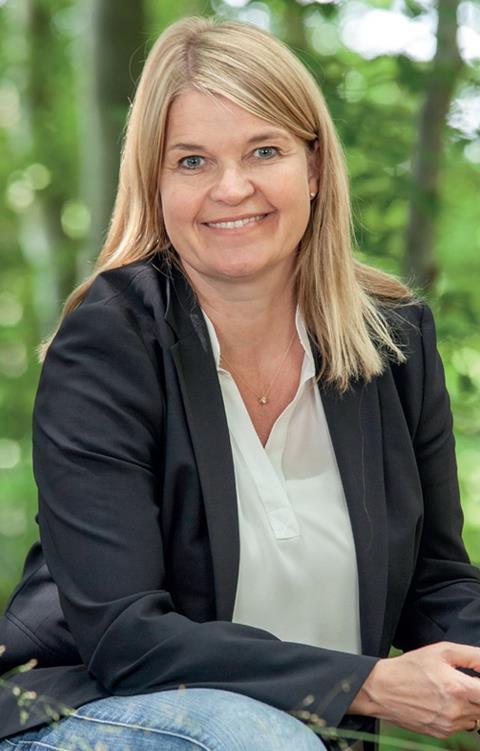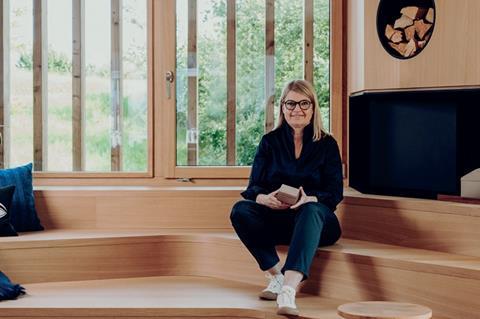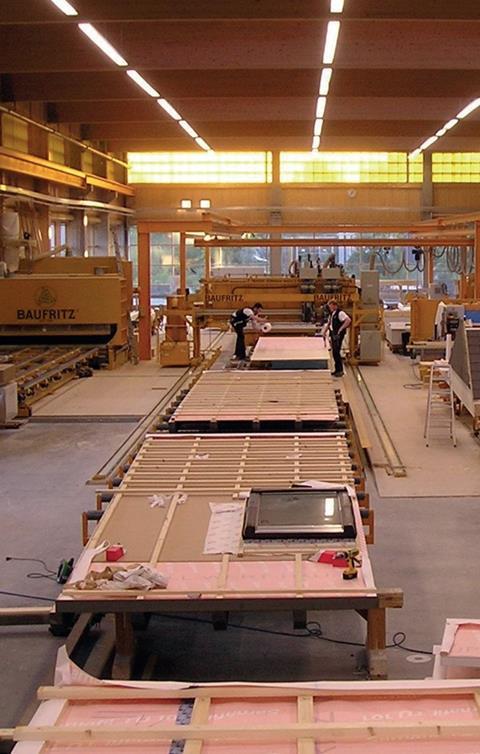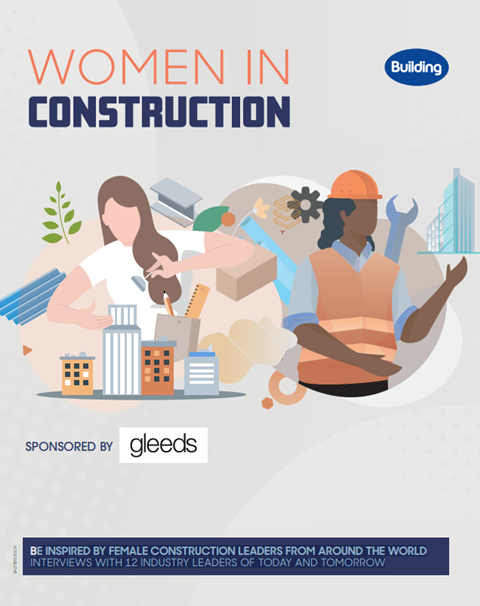This is part of a special report produced by our sister title �ڶ����� in partnership with Gleeds
”During my time at school, I had no personal plans to work at Baufritz [the family firm]. My parents didn’t talk much about what was happening in the company on a day-to-day basis, and so I initially had no real idea how I could contribute my talents to the company,” says Dagmar Fritz-Kramer, the CEO and now owner of Baufritz – a German manufacturer of sustainable timber frame homes.
The family-owned business, which is based in Erkheim, in the south of the country, now employs 300 people and has been a pioneer of sustainable construction for decades.

Despite the family history, it was not a foregone conclusion that Fritz-Kramer’s path would be in construction and housing.
A creative flair saw the now mother of two spend her university years studying interior design, but within 12 months of graduating it had become clear the family business was more than in her blood – it was in her heart too.
>>Special report: Women in construction
She left university in 1998, started at the company as an interior designer in 1999 and by 2004 was running the show.
“By then, I had the confidence and experience to take over the management. Together with a co-managing director, I have been responsible for the operational management of the company ever since,” she says.
Despite her rise to the top in the sustainable housing space in Germany, Fritz-Kramer is only too aware that there is still a perception problem for construction in her country which acts as a barrier to entry for many, especially women.
The innovative nature of her business has also been, for FritzKramer, part of the longstanding devotion to her work.

“We have developed several patents over the years. Today we have around 40 to 50 of them. For example, the patented HOIZ natural insulation – made with wood shavings – is the world’s first sustainable ecological insulation. It has been certified with the cradle-to-cradle gold standard.”
She says the industry is still often viewed as both “dirty” and lacking in the flexibility many women require to balance work and family pressures. She says the latter of these in particular is a factor of which she has always been only too acutely aware.

“As a mother of two children, I have always understood the challenge of reconciling work and family life for myself and its underrepresentation,” she says. “Our head office is in a rural area of Bavaria where we have to do everything we can to attract women to the countryside.”
She says that her company is attempting to support women within the business through flexible working options, regardless of experience level, along with business coaching and mentorship in order to support them into increasingly more senior roles if that is what they wish to achieve.
“We have some inspiring women working with us. I am one of them, but fortunately by far not the only one,” she says.
Fritz-Kramer adds that women hoping for opportunities within the built environment should look to work in businesses where there is a culture of open dialogue.
She says that if businesses are not open to having the necessary conversations and unpacking the challenges through open discussion, then it is much more challenging for women to feel empowered within the workplace – regardless of if they are managers, whether they’ve had to take career breaks or are just starting out.
Download now




























No comments yet